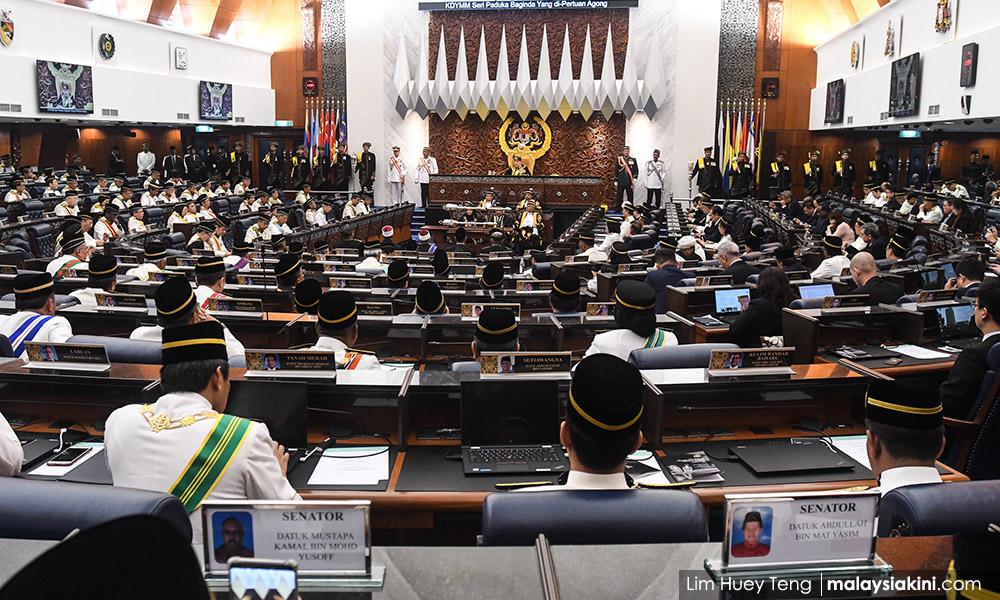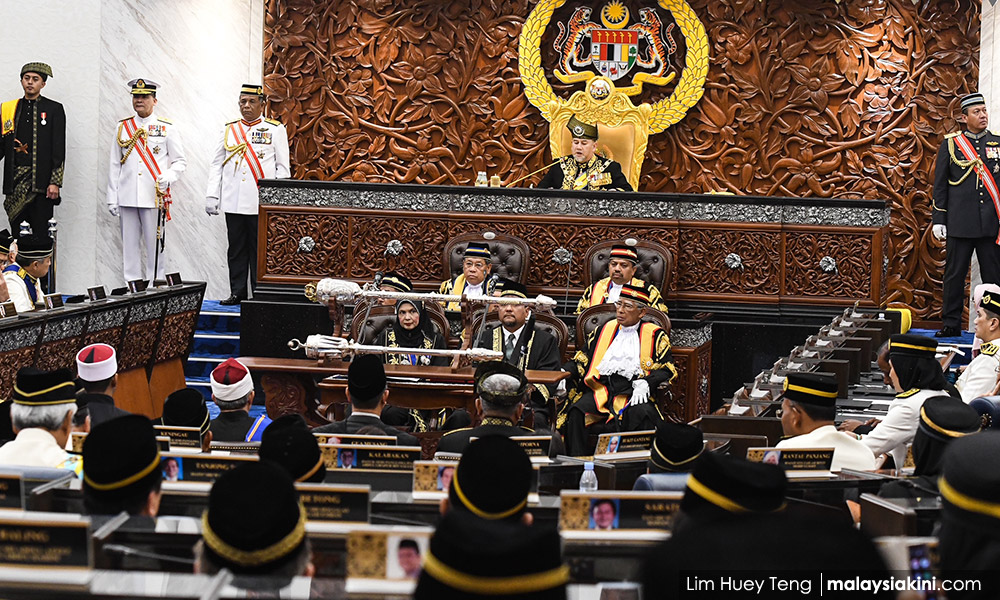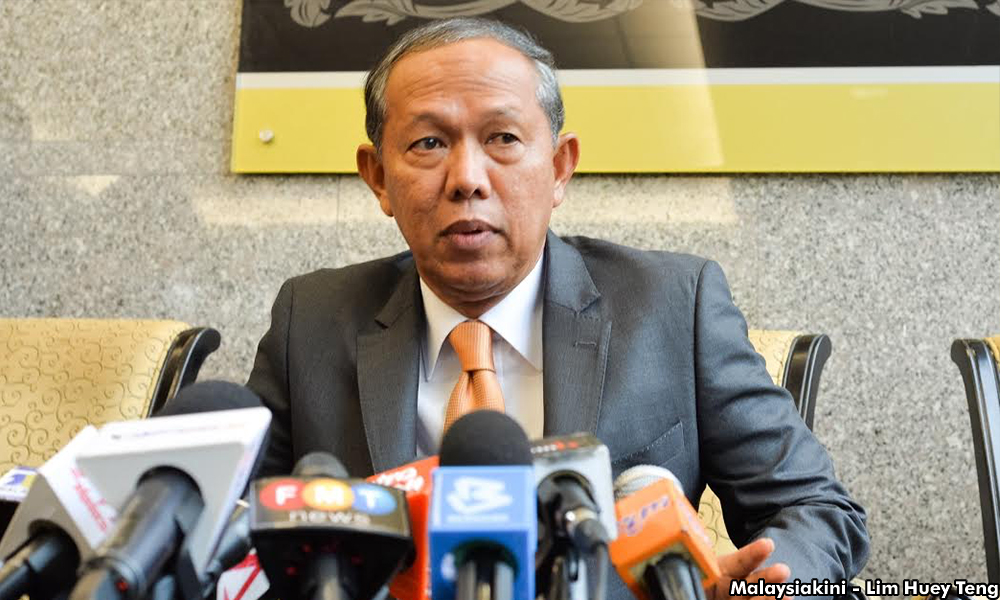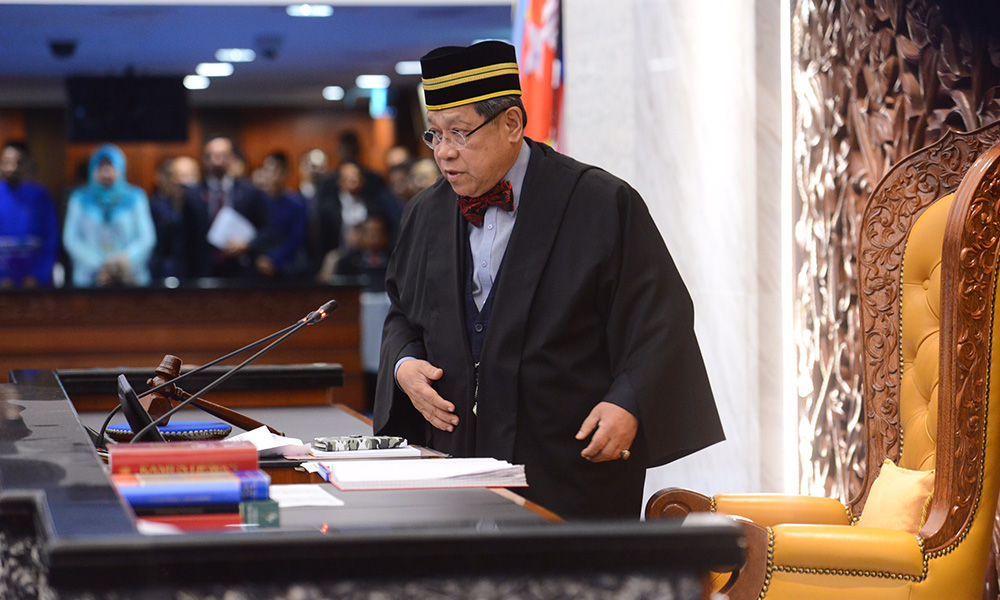
The first sitting of Parliament following the 14th general election next week marks a historic moment as a new coalition takes over the legislative arm of government.
Pakatan Harapan has many plans in store to empower Parliament and restore its independence as part of its institutional reform efforts.
This Kiniguide takes you through the plans as outlined in the Harapan manifesto.
Restoring Parliament’s independence
One of the key planned parliamentary reforms is aimed at taking power away from the prime minister, and giving it to Parliament.
This would place Parliament in a position to keep Putrajaya in check.
To this effect, Harapan plans to revive and improve the Parliamentary Services Act (PSA) - which ironically was repealed by Dr Mahathir Mohamad in 1992 during his first round as prime minister.
Reinstating the PSA would restore Parliament's ability to manage itself administratively and financially, instead of being under the purview of the executive.
Before the PSA was abolished, the Dewan Rakyat speaker and Dewan Negara president jointly appointed members of the parliamentary staff, otherwise known as the Parliamentary Service.
Candidates were chosen and recommended by a selection committee which comprised the clerks of both Houses and a Public Service Department representative.

Under the Act, an advisory committee would determine parliamentary staff numbers, their designations and salaries. This would, in turn, be approved by the Yang di-Pertuan Agong.
Shifting power away from PM
Meanwhile, key institutions such as the MACC, Attorney-General's Chambers, and the Election Commission will report to Parliament instead of the prime minister.
Appointments of the heads and key figures of such bodies are also to be subject to parliamentary approval.
This could prevent past scenarios from reccurring, such as when former prime minister Najib Abdul Razak removed then-attorney-general Abdul Gani Patail as he was probing the 1MDB scandal.
Putrajaya, however, has already made several key appointments without waiting for Parliament to convene, including appointing a new MACC chief.
Empowering the opposition
Besides restoring parliamentary independence, Harapan also has measures planned that would empower the opposition.
One of the pledges is to grant the opposition leader status and provisions equal to that of a minister.
The Public Accounts Committee (PAC), which is responsible for reviewing public audits, will also be chaired by an opposition MP, a move which would ensure that the committee keeps the government in check.

The last PAC chairperson, Umno Rompin MP Hasan Arifin (photo), had previously been accused of government bias and covering up the 1MDB scandal.
Besides this, the Harapan government has also pledged to provide allocations for opposition MPs, a departure from BN’s policy of only financing its own lawmakers.
Mahathir had said last month that opposition MPs will receive an RM100,000 allocation, while government MPs will receive RM500,000.
The opposition will also be granted time to push their own agenda in Parliament.
Accountability
Other reforms planned by Harapan are to increase government accountability and to keep Putrajaya in check.
Among others is a plan to instate a Prime Minister's Question Time which will last 30 minutes each week.
Previously, Question Time under the previous Parliament was free for all ministers, while former prime minister Najib Abdul Razak rarely took questions himself.
There will also be specific times allocated for questions aimed at the various ministries.
Reports from the Human Rights Commission (Suhakam), the auditor-general, PAC, government-linked investment companies (GLICs) and Petronas will also be debated in Parliament.
Putrajaya will also annually publish all directorships and consultant positions held by MPs in public and private entities, together with the allowances and payments they receive.
Keeping the speaker in check
Besides holding Putrajaya accountable, Harapan also has proposals to keep Parliament itself in check.
One of the proposals is to set up a committee to review complaints on decisions made by the Dewan Rakyat and Senate speakers.

Previously, former speaker Pandikar Amin Mulia (photo) had been accused of making rulings biased in favour of the ruling government, and covering up matters related to 1MDB.
At present, the standing orders state that the speaker's decision is final, and can only be reviewed by a motion.
Such motions, however, are almost never debated because it is always at the back of the order paper.
There are also plans to empower the Senate to keep the Dewan Rakyat in check, and for state-appointed senators to outnumber federal senators.
The Senate is currently viewed as a rubber stamp. However, it is currently dominated by BN, which could spell trouble for Harapan's efforts to pass any bills.
Green and white papers
Harapan also plans to introduce practices of other democracies such as the UK, by tabling green papers.
Green papers are preliminary reports by the government on a policy matter, intended to promote discussion on the matter.
Harapan said it would also table white papers to announce major government policies before new legislation is introduced to Parliament.
Committees and groups
Besides the public accounts and speaker review committees, Harapan also plans to make parliamentary select committees (PSCs) a regular Parliament institution.
A PSC is made up of a small group of people to tackle specific issues, and Harapan plans to provide such committees with provisions and support staff needed for them to function effectively.
The manifesto states that temporary committees can also be created for ad-hoc matters.
One PSC that will be established aims to monitor all ministries, and will have the power to call ministers and senior officials to testify.
Harapan will also encourage MPs to create informal groups such as caucuses to encourage the exchange of views. Such groups can involve civil society members who are not MPs. - Mkini



No comments:
Post a Comment
Note: Only a member of this blog may post a comment.